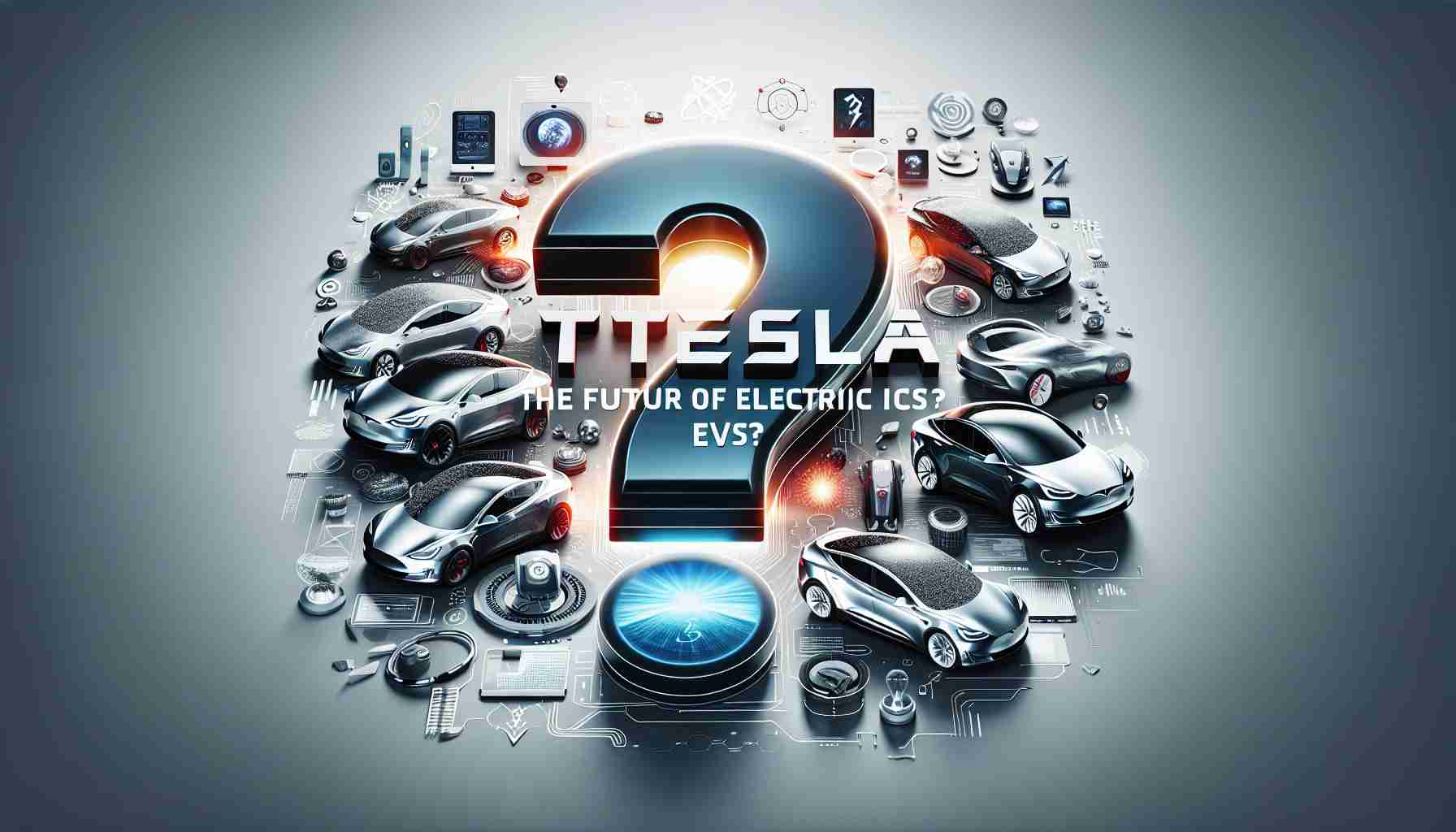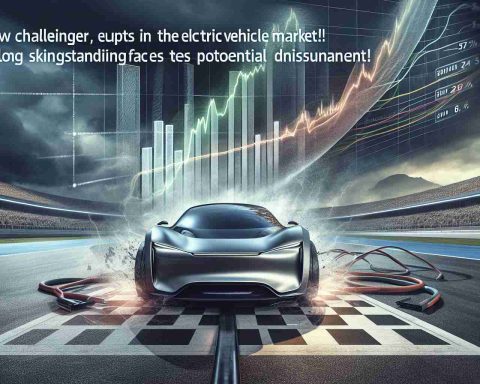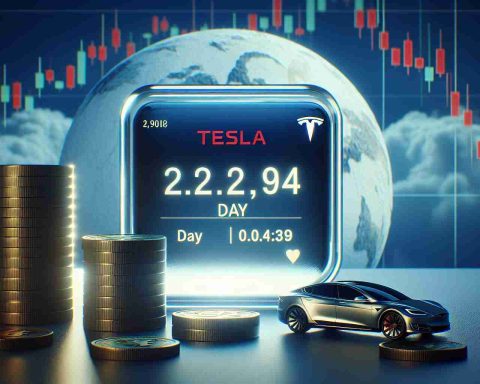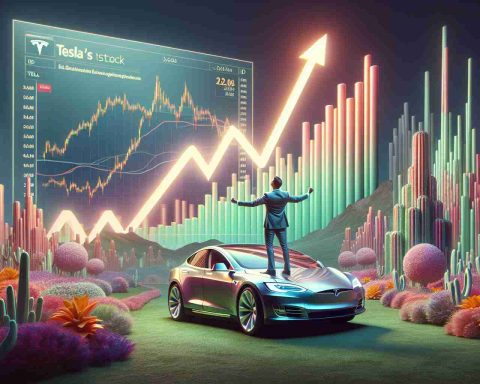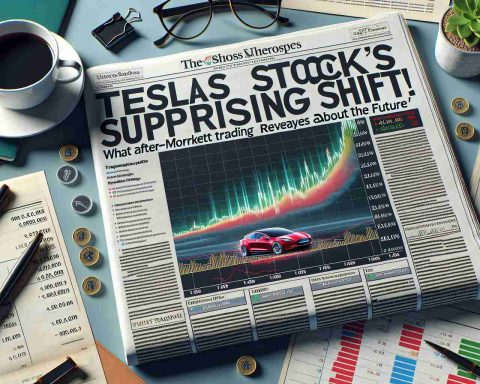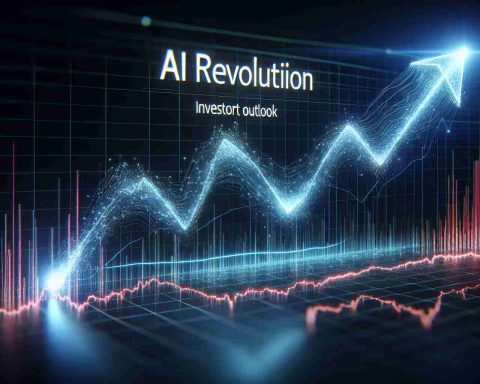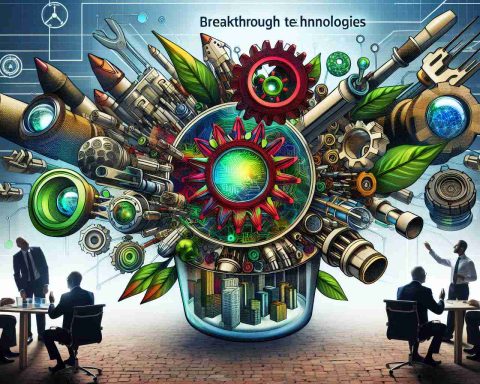Tesla’s Soaring Success Amidst Fierce Competition
Tesla’s stock has experienced a phenomenal surge, climbing by an astounding 98% since October and an eye-popping 1,026% over the last five years. Recently, leading financial analysts have reaffirmed their confidence in the company, issuing an “Overweight” rating and setting an ambitious price target of $430 per share.
With a staggering market capitalization of $1.33 trillion, Tesla is positioning itself not just as an electric vehicle manufacturer but also as a trailblazer in the integration of artificial intelligence (AI) in manufacturing processes. Experts believe this expansion will play a pivotal role in enhancing U.S. factory safety and supply chain efficiency.
From its humble beginnings as a struggling startup, Tesla has dramatically transformed, now producing tens of thousands of vehicles every week through its efficient production network. However, the company faces rising competition, particularly from Chinese automaker BYD, which has overtaken Tesla in total vehicle sales.
Further complicating matters, other contenders like NIO are introducing innovative solutions like battery swapping, although their long-term sustainability remains uncertain. Tesla’s current price-to-earnings ratio suggests it may be overvalued as market dynamics shift.
Despite these challenges, Tesla’s multifaceted revenue streams—including energy storage and potential autonomous services—position it well for future growth, maintaining strong investor confidence amid the evolving landscape of electric vehicles.
The Broader Implications of Tesla’s Triumph
As Tesla continues its rapid ascent in the EV market, its success extends beyond corporate profits and stock valuations. The implications for society and global culture are profound, signaling a shift toward sustainability that could redefine transportation norms.
Tesla’s prominence has catalyzed a broader conversation about clean energy and sustainability. The company’s visibility has illuminated the urgent need for reducing carbon footprints, encouraging governments and consumers alike to prioritize electric vehicles. This trend not only influences buying habits but has also inspired traditional automakers to accelerate their transition to electric options, fostering a more competitive yet harmonious market.
From an environmental perspective, enhanced electric vehicle adoption could lead to a significant reduction in greenhouse gas emissions. However, the surge in battery production raises critical questions about sourcing raw materials responsibly. Mining for lithium and cobalt, essential components in electric vehicle batteries, can result in ecological degradation and human rights violations. Thus, the push for sustainable mining practices is more essential than ever.
Looking toward the future, the integration of AI within manufacturing may revolutionize industries beyond automotive. By optimizing production processes and enhancing safety measures, we may see broader applications across various sectors, setting a precedent for how innovation can drive societal change. Tesla’s journey symbolizes a pivotal moment in the evolution of global economies—a transformation grounded in sustainability, technology, and a commitment to addressing climate challenges for generations to come.
The Future of Tesla: Innovations, Trends, and Market Dynamics
Tesla’s Position in the Evolving Electric Vehicle Market
Tesla Inc. continues to dominate discussions around electric vehicles (EVs) and sustainable energy solutions. The company’s stock has soared an impressive 98% since October, reflecting investors’ growing confidence in its innovative strategies and market presence. With a market capitalization of $1.33 trillion, Tesla is not just a vehicle manufacturer; it is a leader in technological advancements, particularly in artificial intelligence (AI) applications within manufacturing processes.
Innovations and Technological Advancements
Tesla’s commitment to incorporating AI into its manufacturing is set to revolutionize production efficiency and enhance safety standards within U.S. factories. The use of AI allows Tesla to optimize supply chains, predict maintenance needs, and streamline operational workflows, which is critical in today’s competitive market. This innovative approach not only improves operational efficiency but also positions Tesla as a technology leader within the automotive industry.
Market Competition and Trends
Despite Tesla’s successes, it faces fierce competition, especially from Chinese automakers like BYD, which has eclipsed Tesla in overall vehicle sales recently. Competitors are not just building traditional electric vehicles; they are also introducing novel concepts, such as battery swapping technology pioneered by NIO. This could potentially disrupt charging infrastructure needs, although the long-term viability of such solutions remains to be fully assessed.
Pros and Cons of Tesla’s Current Strategy
Pros:
– Strong Investor Confidence: With analysts issuing an “Overweight” rating and an ambitious price target of $430 per share, the market sentiment around Tesla remains largely positive.
– Diverse Revenue Streams: Beyond vehicle sales, Tesla is expanding its portfolio to include energy storage and autonomous driving services, which may provide a buffer against market fluctuations.
Cons:
– Valuation Concerns: Tesla’s current price-to-earnings (P/E) ratio suggests a potential overvaluation, especially with market dynamics shifting as competitors emerge.
– Intensifying Competition: The automotive landscape is evolving, with new entrants adopting various strategies that could challenge Tesla’s market share.
Pricing and Market Analysis
As the competition heats up, Tesla will need to evaluate pricing strategies to remain competitive while maintaining healthy profit margins. For instance, as competitors like BYD offer lower-priced alternatives, Tesla must leverage its brand strength and technological superiority to justify its pricing.
Security Aspects and Sustainability
Tesla’s extensive use of data in AI and connected vehicle technologies brings concerns regarding cybersecurity. Ensuring robust security measures to protect customer data and vehicle integrity is paramount, as breaches could tarnish its reputation.
On the sustainability front, Tesla leads the EV market with a focus on renewable energy solutions and sustainable production methods. Its ambition to achieve net-zero carbon emissions by 2030 resonates well with environmentally conscious consumers.
Future Predictions and Insights
Looking ahead, Tesla is expected to continue innovating in battery technology, with developments that aim to decrease costs and improve performance. Analysts predict that Tesla will maintain its position as a market leader by enhancing its technology stack and expanding globally, particularly in untapped markets.
Conclusion: Navigating the Future
Tesla’s ability to adapt to a rapidly changing automotive environment will be crucial for its overarching success. While challenges from competitors loom large, the company’s commitment to innovation and sustainability positions it well for continued growth. Investors and industry watchers will be keen to see how Tesla responds to the growing competition and whether it can sustain its impressive stock performance in the face of evolving market dynamics.
For more insights into Tesla and the electric vehicle market, visit Tesla’s official site.

